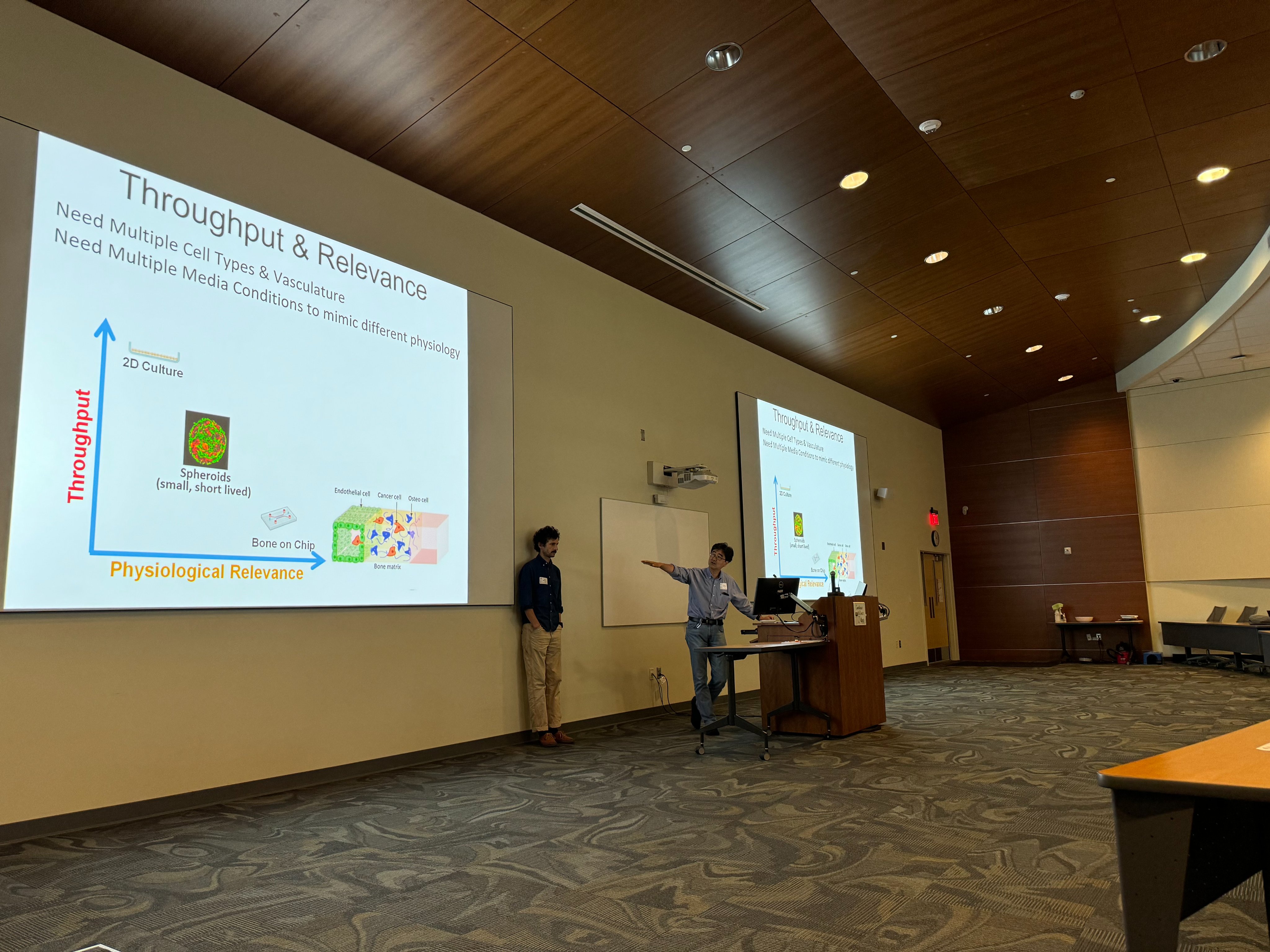Regenerative Engineering and Medicine Center Collaborative Seed Grant Awardees Announced
Sep 04, 2024 —

IBB is excited to announce the awardees of the 2024-25 Regenerative Engineering and Medicine Center (REM) Collaborative Seed Grant. REM is a partnership with Georgia Tech, Emory University, and the University of Georgia that supports and facilitates inter-institutional collaborations in research in regenerative medicine. Since 2010, competitive peer-reviewed seed grants have been awarded annually to groups with representation from at least two of the three institutions, leading to external funding for new research. In addition to the center’s core focus areas, this year’s cycle was particularly interested in proposals that explore the intersection of regenerative medicine and aging.
In Cho of the University of Georgia and Peng Jin of Emory were selected for funding for their proposal, "Developing Hypothalamic-Pituitary-Testicular Assembloid.” This project aims to create a pioneering 3D organoid model that replicates the interactions between these critical tissues. The research could lead to breakthroughs in understanding male reproductive health and fertility, potentially paving the way for new therapeutic strategies.
“This grant builds on the pioneering works of our collaborative team, including my work with Charles Easley on the in vitro spermatogenesis and testicular organoid model and Peng Jin at Emory on the brain-region-specific organoid model,” Cho said. “The development of 3D hypothalamic-pituitary-testis assembloids will facilitate important research on male reproductive health and disease. It will also offer solutions to many of the challenges inherent in this field by providing more relevant, ethical, and detailed models for research, ultimately holding the promise of improved understanding, prevention, and treatment of male reproductive health issues.”
Jin Xie of the University of Georgia and Yong Teng of Emory were selected for funding for their proposal, “Enhancing Dendritic Cell Migration and Maturation in Aged Individuals Using Calcium Nanoparticles.” Focused on addressing the challenges of aging in cancer treatment, this project seeks to enhance the function of dendritic cells in older individuals using cutting-edge calcium nanoparticle technology. The goal is to improve immune response in aged patients, making cancer immunotherapies more effective and accessible for this vulnerable population.
“Immune checkpoint blockade has revolutionized cancer treatment, but many patients, especially the elderly, fail to respond effectively due to a lack of tumor infiltration of conventional type 1 dendritic cells (cDC1s), which are crucial for robust antitumor immunity,” Xie said. “To address this issue, we propose a novel approach using calcium nanoparticles to enhance cDC1 migration, maturation, and function. This strategy has the potential to improve immunotherapy outcomes in head and neck squamous cell carcinoma and potentially other cancers.”
Nicole Schmitt of Emory and Gabe Kwong of Georgia Tech were selected for funding for their proposal, “NLRC5 Lipid Nanoparticles for Rescue of Sensitivity to Immunotherapy in Head and Neck Cancer.” This research aims to revolutionize the treatment of head and neck cancers by developing lipid nanoparticles that enhance the effectiveness of immunotherapy. By targeting immune signaling pathways, this project holds promise for significantly improving patient outcomes in cancers that are notoriously difficult to treat.
“Resistance to immunotherapy is a major problem in head and neck cancers, due to deficiencies in the cellular machinery needed to process and present tumor antigens to T lymphocytes,” said Schmidt. “This project will explore the use of a lipid nanoparticle to deliver mRNA encoding a deficient transcription factor called NLRC5 as a potential strategy for restoring sensitivity to immunotherapy in preclinical models of head and neck cancer.”
Franklin West of the University of Georgia and Levi Wood of Georgia Tech were selected for funding for their proposal, “Illuminating the Neuroprotective and Regenerative Effects of NSC-Derived Extracellular Vesicles for Treatment of TBI in a Translationally Relevant Swine Model.” This ambitious project explores the potential of neural stem cell-derived extracellular vesicles to promote healing and regeneration in traumatic brain injury (TBI). Utilizing a swine model, which closely resembles human biology, this research could lead to new, effective treatments for TBI, ultimately improving recovery outcomes for patients.
"Traumatic brain injury (TBI) is a devastating condition that affects over 2 million people in the U.S. every year with no FDA-approved treatment,” said West and Wood in a joint statement. “In this study, we are evaluating neural stem cell extracellular vesicles as a promising therapeutic that is neuroprotective and regenerative and is now going into human clinical trials for stroke. This study is foundational and will likely lead to rapid translation to clinical trials for TBI."

Savannah Williamson





